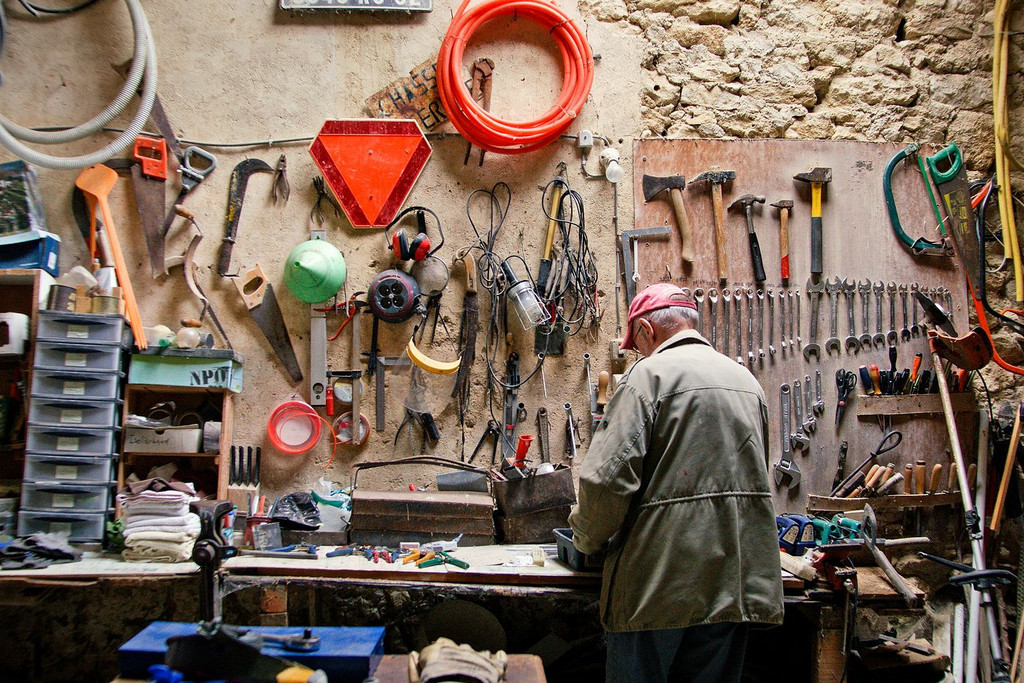When Switzerland’s leading orchestra, the Tonhalle-Orchester Zurich, started looking for a new chief conductor in recent months, the question of whether the candidate should hold Swiss nationality was clearly not a factor. A Frenchman is being replaced. And over at the Zurich Opera House the chief conductor is Italian. Basel, Aargau and Geneva have British conductors, while there is a Dutchman in St. Gallen, a German in Lugano and both an American and an Italian in Lucerne. Swiss citizens only hold the top jobs at the orchestras of Biel/Solothurn and Berne.
Are there so few Swiss conductors, or do they not get an opportunity? Is there reason for concern? Let us not get ahead of ourselves, as this summary of the domestic scene is deceptive. Who is conducting the best orchestras in the world and has led a second-class one to world fame? The 81-year-old Swiss citizen Charles Dutoit. Who is the chief conductor of the Paris Opera and has a strong foothold in the world music capital with the Vienna Symphony Orchestra? 43-year-old Philippe Jordan from Switzerland. Who is enjoying a more meteoric rise than almost any other conductor and is wisely developing his orchestral knowledge? The 27-year-old Swiss conductor Lorenzo Viotti.
Untypically Swiss self-assurance
Is the fact that Lausanne-born Lorenzo Viotti always exudes such self-assurance and the impression of great knowledge about his art untypically Swiss? What is extraordinary about Viotti is that his awareness of his own strengths is accompanied by almost masochistic self-criticism. Viotti nevertheless fends off external criticism by doing everything in his power to ensure the orchestra musicians know how important they are to him. He is a firm believer that everything else will take care of itself.
The musical visionary studied percussion in Vienna because he wanted to sit at the back of the orchestra with the timpani and analyse the psychology of the musicians. He studied singing because he wanted to feel and understand the needs of an opera singer. He sang in a choir to gain an insight into how singers breathe. And he spent hours at orchestral rehearsals under the great masters – such as Georges Prêtre and Mariss Jansons – following the thought processes through, and was just as exhausted after three hours as the “real” maestros conducting. When one day he stands in front of their top orchestras he will have no fear. “The podium is the only place where I really feel at home. Obviously, I find it electrifying from the very first note – it’s not fear, though, but rather impatience. I then just want to look the musicians in the eye – and let go,” he remarks. “That is the most wonderful moment in my life.”
Lorenzo Viotti has been in the spotlight since winning the “Nestlé and Salzburg Festival Young Conductors Award” in summer 2015. A young conductor has to be prepared for such attention. Viotti knows the business, though. His father was the famous conductor Marcello Viotti. His mother always said: “Lorenzo will be a conductor one day.” His father was sceptical and concerned that his son would find it too great a challenge to step out of his shadow. Today, Lorenzo is fortunately able to say that he was too young to imitate his father’s style. He prefers not to remember his father as a conductor. He was more influenced by other leading conductors.
Fear of living in his father’s shadow
The Swiss conductor Philippe Jordan, who will soon turn 43, experienced a similar situation. While he started out as an assistant to his father, Armin Jordan, he soon forged his own path. He avoided Zurich for a long period as he did not want to be seen as “Jordan junior” or “Armin’s son”. He even turned down the prestigious position of chief conductor at the Zurich Opera House once offered to him by the director Alexander Pereira. “Making my own way was very important to me. Switzerland was too small and my father’s presence too great to allow me to do that,” explains Jordan. He now occasionally visits Zurich to conduct the Tonhalle-Orchester. Someone who holds a chief conductor position in both Paris and Vienna and is a guest conductor with the top ten orchestras in the world no longer really needs his native city.
While still in Zurich as a high school student in the queue with the rest of the audience for the opera house ticket office, he stood out because he seemed so mature and serious-minded. At the age of 16, he was already wearing checked jackets like the 80-year-old conductors of the day. Barely having graduated, Jordan began his training as an opera conductor in a way that few people had the opportunity to enjoy (or perhaps endure). This was nothing like the careers of high-flyers propelled into stardom by CD productions and marketing departments. His father did not simply let him conduct, but believed that his son had to understand the profession from the bottom up, to know what it feels like to sit at the piano for eight weeks of operatic rehearsals or if you still love Mozart’s “Don Giovanni” when you have gone through the same parts a hundred times with the singers.
If you ask him about his trio of mentors at that time – Jeffrey Tate, Daniel Barenboim and his father – he immediately points out that there were four: “My most important mentor was the Vienna Philharmonic Orchestra.” This is typical of Jordan – only those who challenge themselves at the sharp end stand to gain. As he puts it: “It’s all about working with this sometimes indomitable beast – the orchestra.” How can I rehearse well with the best and how can I get what I want out of them? What inspires them to perform? He constantly reflected on such questions. His education lasted several years. Jordan regarded this process as part of his training, while other young stars saw it as the achievement of their goal.
Lorenzo Viotti, too, has no fear of the major orchestras but is still learning from the smaller ones. He underlines with a proud sense of serenity that he has all the time in the world to pursue his career. “Whether or not people respect that, it’s my life. You can’t conduct the Munich Philharmonic Orchestra at the age of 25. It’s a trap – it is detrimental psychologically and even worse artistically. If you stand in front of the Vienna Philharmonic Orchestra at the age of 25 or take on all of Mahler’s symphonies at 30, what are you going to do at 50? Or at 70 come to that? Where will you find the drive and desire?” He has therefore already turned down prestigious offers to instead conduct in Lausanne, Jena and Nice – only occasionally succumbing to the temptations of the major orchestras and conducting the Concertgebouw in Amsterdam. Who would pass up the chance to drive a Ferrari if they knew exactly how to handle one?
Swiss cosmopolitan
Charles Dutoit has accomplished everything that lies ahead of Viotti but still captivates every orchestra and audience with his knowledge and charm. His nonchalance is infectious. Crossing the abyss-like pit of large symphony orchestras, he turns, full of verve, to the audience on the last bar and says with a wave of the hand: “You see, it’s that easy.”
Dutoit was born in Lausanne in 1936. He worked in Berne and Zurich until 1973, but then the world opened up to him and he to it. In 1977, he was appointed musical director in Montreal – leading the previously second-rate orchestra to world acclaim – and was at the same time the chief conductor of three leading orchestras while recording dozens of records. Those featuring the music of Berlioz and Debussy are still considered a benchmark. He then worked in London, Paris and Tokyo – a cosmopolite who even speaks Japanese.
If Zurich’s Tonhalle-Orchester – allowing for speculation – had to choose its new chief conductor from one of these three, it would probably take Dutoit. Only his age goes against him, although if you saw him nonchalantly strutting on the podium in his white smoking jacket, you would soon forget how old he was. There again, the Zurich-based orchestra might regret not having appointed Lorenzo Viotti as its chief conductor in 2019. The rest of the world, the orchestras from Tokyo to New York, would be pleased they did not.
Christian Berzins is music critic WITH the “NZZ am Sonntag”














Comments